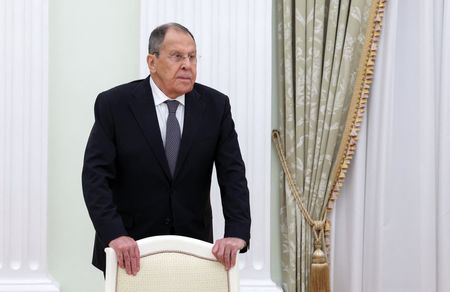BUDAPEST (Reuters) -Hungary said on Saturday it had obtained an indefinite waiver from U.S. sanctions for using Russian oil and gas, contradicting a White House official who said it had been granted a one-year exemption.
Last month, U.S. President Donald Trump imposed Ukraine-related sanctions on Russian oil companies Lukoil and Rosneft that carried a threat of further sanctions against entities that buy oil from those firms.
Hungarian Prime Minister Viktor Orban, a long-time Trump ally, met with Trump at the White House on Friday to press for a reprieve. Hungary relies heavily on Russian energy and Orban, 15 years in power, faces the prospect of a close election next year.
“The prime minister was clear. He has agreed with the U.S. President that we have obtained an indefinite exemption from the sanctions,” Hungarian Foreign Minister Peter Szijjarto said on Facebook.
“There are no sanctions on oil and gas shipments to Hungary for an indefinite period.”
The White House official had noted that, in addition to the sanctions exemption, Hungary had committed to buying U.S. liquefied natural gas with contracts valued at some $600 million.
Hungary has maintained its reliance on Russian energy since the start of the 2022 conflict in Ukraine, prompting criticism from several European Union and NATO allies.
Speaking in Washington late on Friday, Orban also said Hungary had received an indefinite exemption for energy imports via the TurkStream gas pipeline and the Druzhba oil pipeline.
“There are no sanctions that would restrict Hungary’s supply through these routes or make it more expensive. This exemption is general and has no time limit,” Orban said.
International Monetary Fund figures show Hungary bought 74% of its gas and 86% of its oil from Russia in 2024, warning that an EU-wide cutoff of Russian natural gas alone could cost Hungary more than 4% of its GDP.
Orban said that, without the agreement, energy costs would have surged, hitting the wider economy, pushing up unemployment and generating “unbearable” price rises for households and firms.
(Reporting by Gergely Szakacs; Editing by Kevin Liffey)










